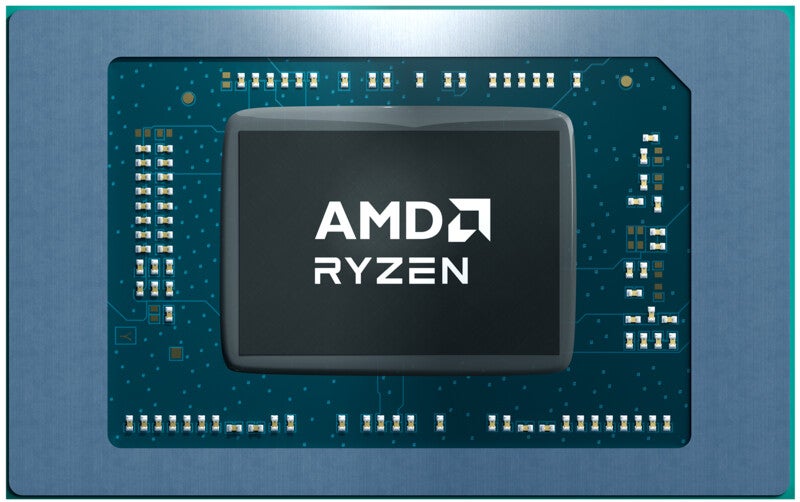The Asus ROG Ally is inbound and we now know it’ll be powered by either an AMD Ryzen Z1 or Ryzen Z1 Extreme chip, depending on your chosen configuration. But, what are these new gaming chips from AMD, and how do they compare?
Gaming handhelds look set to get a big dose of AMD performance over the course of 2023, with its latest Zen 4 technology being used to power new devices. The Ryzen Z1 and Z1 Extreme look to be exclusive to the Asus ROG Ally, but comparisons with the unannounced Ryzen 7000 series chip appear to indicate a lot of similarities.
Either way, we’re intrigued to see exactly how these chips perform on any gaming handhelds and, especially, up against the Steam Deck. Take a look below as we delve into the specs of the chips that’ll debut on the Asus ROG Ally, the Ryzen Z1 and Ryzen Z1 Extreme.
Price
You won’t be buying the Ryzen Z1 or Ryzen Z1 Extreme outright. Instead, they’ll be nestled inside different models of the Asus ROG Ally. As you might expect from the name, you can anticipate that configurations equipped with the Z1 Extreme will cost more than Z1-fitted devices.
Asus is yet to reveal pricing but, in our media briefing, they insisted it would be under $1,000. We’d expect that to be the starting price though, with plenty of lurches upward for enhanced specs. That’s a lot more than the £349/$399 base price of the Steam Deck.
When it comes to pitting these chips against each other, we don’t yet know how big the pricing gap will be between the Ryzen Z1 and Ryzen Z1 Extreme models, but we’ll update this article once it has been revealed. We do know the Asus ROG Ally will be exclusive to Currys in the UK.
Specs
The AMD Ryzen Z1 and Z1 Extreme look set to have quite a difference between them when it comes to the nitty-gritty of the specifications. Here are the confirmed specs:
| AMD Ryzen Z1 | AMD Ryzen Z1 Extreme | Steam Deck (Custom AMD APU) | |
| Clock Speed | – | – | 2.4-3.5GHz |
| Architecture | Zen 4 / RDNA 3 | Zen 4 / RDNA 3 | Zen 2 / RDNA 2 |
| Cores | 6 | 8 | 4 |
| Threads | 12 | 16 | 8 |
| Graphics Compute Units | 4 | 12 | 8 |
The Z1 series looks set to be an exclusive custom chip for the Asus handheld but, as Videocardz has reported, the Z1 Extreme looks remarkably similar to an unannounced AMD Ryzen 7 7840U. That chip is expected to show up in non-Asus gaming handhelds.
Both the Z1 chips will have a 4nm process and offer support for AMD’s RSR (Radeon Super Resolution) and FSR (FidelityFX Super Resolution) upscaling technology.
The Ryzen Z1 series clock speed has not been confirmed by Asus or AMD but leaked results have shown up on Geekbench (via Videocardz) indicating up to 5.0GHz for the regular chip and up to 5.1GHz for the Z1 Extreme.
Performance
Neither Asus or AMD have shown off benchmarks or touted specific settings when it comes to how well either of the Z1 series chips will perform. The display is Full HD 120Hz, which gives us some indication of what performance level is being aimed at.
For now, we can only make vague conclusions regarding the performance of the Z1 versus the Z1 Extreme based on the specs. We’d expect the performance gap to be quite significant given the differences in core and thread count as well as the huge gap in graphics compute units (2 vs 6). However, both Ryzen Z1 series chips are based on the same architecture so the difference isn’t going to be generational. The specs of both chips would suggest, whichever you go for, that the performance should surpass the Steam Deck.
Both chips will be assisted by Asus’ ROG Intelligent Cooling. You’ll find, what Asus calls, a Zero Gravity Thermal system, aimed at cooling the device well no matter how you hold it. There’s Asus’ Anti-Gravity heat pipes too, ensuring water is drawn where it needs to go.
There’s two fans onboard and Asus showed off the benefits of this in the media briefing, showing a significantly cooler rear of the device as well as less noise than a simple one fan solution.





